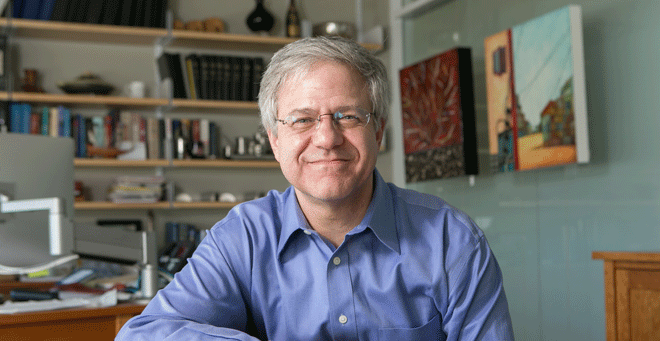 |
|
|
Phillip D. Zamore, PhD |
Acting on a key recommendation of the standard five-year review of departments, programs and institutes, the RNA Therapeutics Institute (RTI) has been accorded academic department status, Chancellor Michael F. Collins has announced.
“In recognition of his extraordinary level of accomplishment, leadership and performance as the managing co-director of the RNA Therapeutics Institute, I am pleased to announce that Phillip D. Zamore, PhD, Howard Hughes Medical Institute Investigator, the Gretchen Stone Cook Chair in Biomedical Sciences and professor of biochemistry & molecular pharmacology, has been appointed as the new department’s founding chair,” said Chancellor Collins.
“The establishment of the RTI as a department and the appointment of an academic chair is enthusiastically supported,” said Terence R. Flotte, MD, executive deputy chancellor, provost and dean of the School of Medicine. “The current RTI co-directors and the Executive Council recognize the substantial and important success of the RTI in its current incarnation and thus, appreciate how departmental status will further enhance its opportunities for achievement going forward.”
Dr. Zamore has been co-director of the RTI with Craig C. Mello, PhD, Howard Hughes Medical Institute Investigator, the Blais University Chair in Molecular Medicine and professor of molecular medicine and cell & developmental biology; Victor Ambros, PhD, the Silverman Chair in Natural Sciences and professor of molecular medicine; and Melissa J. Moore, PhD, Howard Hughes Medical Institute Investigator, the Eleanor Eustis Farrington Chair in Cancer Research and professor of biochemistry & molecular pharmacology.
“When we announced the creation of the RTI in June 2009, we charged these four leaders with the responsibility of creating an innovative, nimble and scientifically rigorous home for RNA research dedicated to human impact,” said Collins. “They have delivered on this promise, so much so that the maturation of the RTI invites this next step, and Phil’s qualities of leadership and vision make him a natural choice. His willingness to accept this role speaks to his commitment to seeing the field of RNA therapeutics become a centerpiece of translational medicine.”
Zamore is an internationally-renowned pioneer in the study of RNA silencing in eukaryotes.
“Those who know well the many contributions that he has made to the exploration of gene regulation by small RNAs have commented that Phil essentially invented the study of the molecular mechanisms of RNA interference when he and colleagues developed the first cell-free system that recapitulated RNAi in a test tube,” said Dean Flotte. “This breakthrough inaugurated the biochemical study of RNAi and other RNA silencing pathways and opened up new fields of opportunity in the biotechnology industry. In the years since, Phil and his collaborators have continued to develop new tools that advance the biochemical study of RNA silencing, as well as the application of RNA silencing to the treatment of human disease.”
“The scholarly works of our faculty are rightly held in high esteem as they represent important and influential contributions to science,” said Flotte. “Phil’s work as a scientific and organizational leader place him in a category of a true academic, one who helps create the environment in which scientific discovery can thrive. Please join us in thanking Phil for taking on this important and transformational role.”